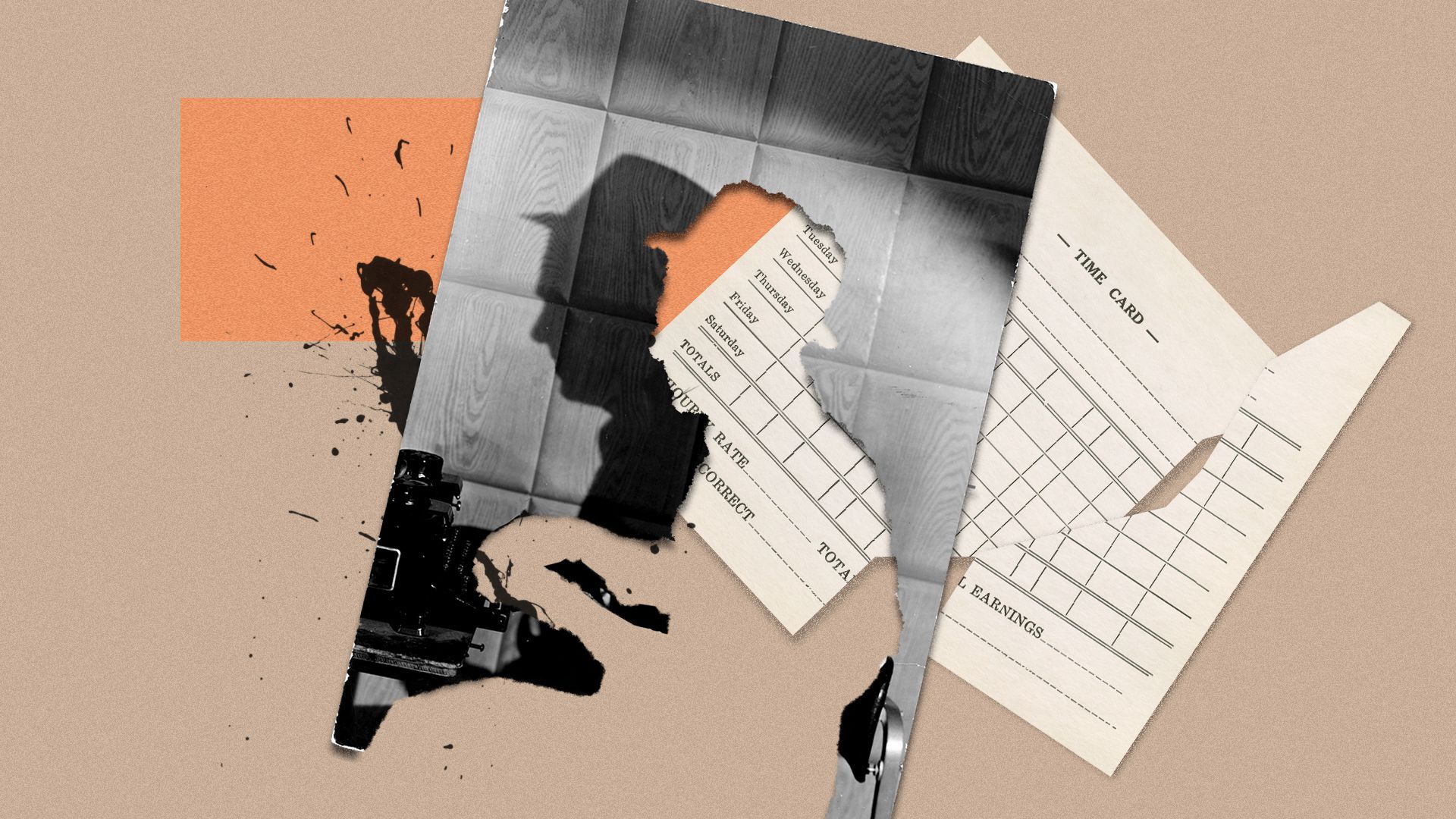The pandemic's toll on older workers
Add Axios as your preferred source to
see more of our stories on Google.

Photo illustration: Annelise Capossela/Axios. Photo by Bettmann/Getty Contributor.
The pandemic threatens to chip away at employment among workers over the age of 55 — an increasingly important part of the U.S. labor force.
Why it matters: As the world ages, the older population has become key to economic growth, both as workers and as consumers.
- Now, the dual impact of the coronavirus' heightened risk for older workers and lingering ageism in the workplace leaves the future of work for that population hanging in the balance.
The big picture: "We’ve seen in the past 20 years a tremendous increase in the employment of older workers," says Richard Johnson, director of the Program on Retirement Policy at the Urban Institute. "And you really wonder if this pandemic is going to change that trajectory."
Virus risk could force older workers to choose between their lives and their livelihoods.
- Since lockdowns began, the unemployment rate of older workers has been consistently higher than that of their younger counterparts. That may be in part because they are afraid to go back to work.
- Older workers are less likely than younger workers to have jobs in which they can telecommute, so, for many, going to work means putting themselves in harm's way. Per the Economic Policy Institute, 25% of workers over the age of 65 can work from home, compared with 36% of those between the ages of 35 and 44.
- And even those who can telecommute are dealing with offices reopening and firms giving employees the option to return. If older employees choose to keep working remotely to avoid virus risk, they'll miss out on in-person interactions and potentially get overlooked or even passed up for promotions.
Older workers who lose their jobs amid the pandemic-induced recession will also have a difficult time re-entering the workforce — and they may drop out entirely.
- "The issue of ageism unfortunately is alive and well in the workplace," says Jo Ann Jenkins, CEO of AARP. "Being unemployed is tough to navigate at any age, but it is particularly difficult the older you get."
- Age discrimination claims were on the rise even before the pandemic. "Despite decades of research finding that age does not predict ability or performance, employers often fall back on precisely the ageist stereotypes [the 1967 Age Discrimination in Employment Act] was enacted to prohibit," Victoria A. Lipnic, then-acting chair of the Equal Employment Opportunity Commission, wrote in 2018.
- Those who are in their 50s and 60s or older and lose their jobs tend to stay unemployed for far longer than the younger cohort. Only 10% of these workers will make as much as they used to when they eventually do get jobs.
- The bleak outlook for older workers could push many to give up and retire early, experts say.
The stakes: Before the pandemic began, nearly all of the employment growth in the G7 nations was coming from older workers, says Andrew Scott, an economist at London Business School.
That's because falling birth rates in the world's developed countries are causing those societies to age. And as growing numbers of younger people delay work for education, older workers become even more vital.
- Demographers project that workers over 55 will make up 25% of the labor force in the U.S. and the U.K. by 2025.
- Employment in the U.S. has risen by 22 million since 1998 — and workers over 55 account for 90% of that surge, Quartz reports. Americans over 50 also account for around $8 trillion of consumer spending, per AARP's estimates.
- And in the U.K., where demographic and employment trends mirror those in the U.S., those between the ages of 55 and 59 are more likely to be employed than those between 20 and 25, Scott says.
The bottom line: "Older workers' contributions propel economic growth," says Johnson. "The economy needs older workers who fill the nation's staffing needs."
